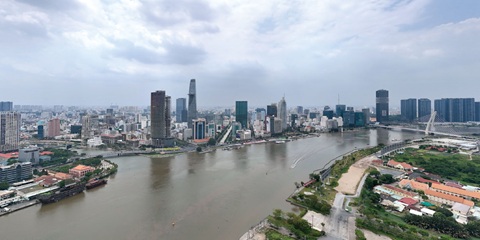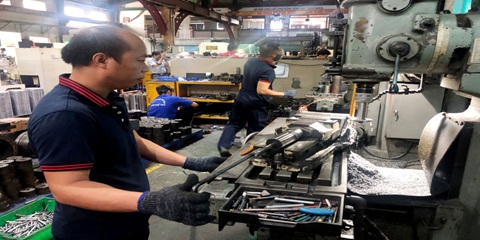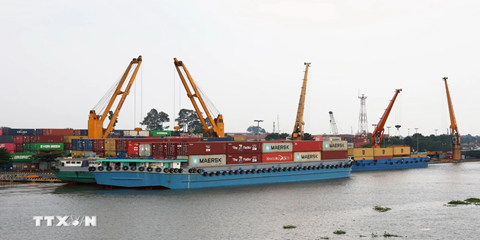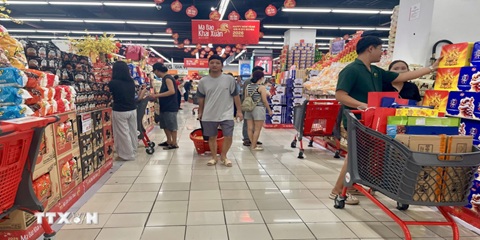Want to be in the loop?
subscribe to
our notification
Business News
HEADQUARTERS ECONOMY TO HELP HK FIGHT FOR TALENT
Tens of thousands of people have moved to Hong Kong since last year under measures designed to attract talent, but the city will need to strengthen its efforts to remain competitive, Chief Executive John Lee said on Wednesday.
The government will develop a headquarters economy to attract firms to the SAR and help them tap into the mainland market, Lee said in his Policy Address.
At the same time, the authorities will look at ways to get mainland companies to set up headquarters or divisions in Hong Kong.
Lee said the government will also introduce a mechanism to make it easier for companies domiciled overseas to re-domicile in the SAR.
From October 26, foreigners working for companies registered in Hong Kong will be able to apply for multiple-entry visas to the mainland that are valid for two years, the CE said, adding that these people will also be given priority processing.
The chief executive said his administration will bring back the Capital Investment Entrant Scheme, allowing those who make investments of HK$30 million or more to move to Hong Kong.
"This will strengthen the development of our asset and wealth management business, financial services and related professional services," Lee said.
Other Policy Address measures aimed at attracting and retaining talent include setting up an office for Hong Kong Talent Engage – which provides support for those moving to the city – as well as adding eight outside universities to the Top Talent Pass Scheme and relaxing visa requirements for people from Vietnam, Laos and Nepal.
Meanwhile, a two-year pilot programme will allow non-local students of full-time professional Vocational Training Council higher diploma programmes to be allowed to stay in Hong Kong to look for a job in the 12 months after their graduation.
Source: RTHK.HK
Related News

HCMC LOOKS TO LURE US$11 BILLION IN FDI FOR 2026
To reach the milestone – a significant jump from US$8.37 billion in 2025 – the city is adopting a selective high-quality approach. Priority is given to high-tech and digital transformation with semiconductor, AI, and data centers; logistics and finance with the Vietnam International Financial Center in HCMC and the Cai Mep Ha Free Trade Zone and smart infrastructure with transitioning existing industrial parks into eco-smart models.

DURIAN EXPORTS PROJECTED TO HIT US$1 BILLION IN Q1
Vietnam can gain US$1 billion in revenue from durian products exports within the first quarter of this year, provided that customs clearance at northern border gates remains favorable. This optimistic outlook was given by the Agency of Foreign Trade under the Ministry of Industry and Trade following a good start to the year, with January figures reaching over US$117 million, up by a staggering 275% year-on-year.

MANUFACTURING SECTOR HITS FOUR-MONTH HIGH ON STRONGER DEMAND
Vietnam’s manufacturing sector expanded at a faster pace in February, with the Purchasing Managers’ Index (PMI) rising to 54.3 from 52.5 in January, marking the strongest improvement in four months, according to S&P Global. The reading remained well above the 50-point threshold that separates expansion from contraction. It also extended the sector’s current growth streak to eight consecutive months, reflecting improving business conditions.

TRADE DEFICIT WIDENS IN EARLY FEBRUARY AS IMPORTS SURGE
Vietnam posted a trade deficit of about US$948 million in the first half of February 2026, as imports rose faster than exports, according to preliminary data from the Department of Vietnam Customs. Total trade between February 1 and 15 reached US$41.67 billion. Exports stood at US$20.36 billion, while imports totaled US$21.31 billion.

FRANCE SEES VIETNAM AS KEY EXPORT MARKET IN 2026
France’s public investment bank Bpifrance has ranked Vietnam among the five most promising export markets for French companies in 2026, alongside Indonesia, Morocco, Canada, and the United Arab Emirates, reported the Vietnam News Agency. The assessment highlights Vietnam as a destination with strong growth potential at a time when global trade remains volatile and many exporters still focus on traditional markets such as Germany, the United States, and China.

HCMC SEES 14 MILLION PASSENGER TRIPS DURING LUNAR NEW YEAR
HCMC handled more than 14 million passenger trips during the nine-day Lunar New Year (Tet) holiday from February 14 to 22, according to the city’s Department of Construction. Le Hai Phong, deputy head of the Road Transport Management Division under the Department of Construction, told a press briefing on February 26 that transport services met strong travel demand while traffic accidents declined and no serious incidents or prolonged congestion were reported.
























